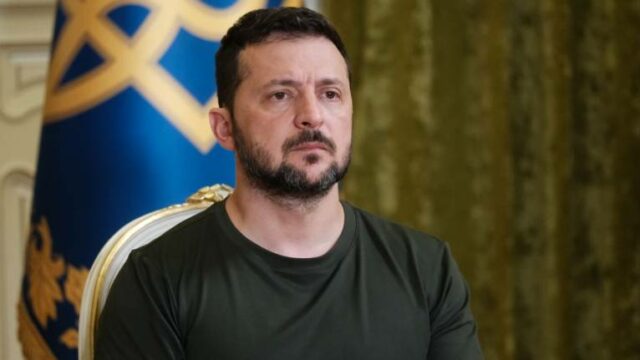Ukrainian President Avoids Commentary on Military Leadership Amid Ongoing Frontline Struggles
In a recent press conference that captured widespread attention, Ukrainian President Volodymyr Zelensky chose not to comment on the performance of General Oleksandr Syrsky, the Commander-in-Chief of the Armed Forces of Ukraine. This decision comes amidst significant challenges on the frontline, raising questions about military effectiveness during a pivotal period for the country.
Respecting Every Contribution
When journalists pressed President Zelensky for insights into General Syrsky’s leadership, he responded thoughtfully: «Everyone is doing their job in their own place. I believe that each person deserves respect.» This sentiment highlights a critical aspect of teamwork and collaboration in times of crisis. Why is this approach significant? Research indicates that collective efforts often yield better outcomes, especially in high-stakes situations like military operations.
Indeed, Zelensky’s reluctance to weigh in on performance reflects a deeper understanding of the challenges faced by military leadership. It’s vital to recognize that success in such complex scenarios often hinges on the synergy between different roles. Take, for example, the real-life scenario from earlier in the conflict when local commanders and national leadership worked hand-in-hand to halt enemy advances—showcasing that success is rarely the result of a single individual’s efforts.
The Strategic Importance of Kharkiv
During the press conference, President Zelensky underscored General Syrsky’s critical role in the defense of Kharkiv, a strategically vital city. He stated, «He knows Kharkiv, and that is important. But I do not want to make comparisons.» This acknowledgment is crucial, as Kharkiv’s fate has significant implications for the overall military landscape. According to military analysts, maintaining control over such cities not only uplifts morale but also serves as a logistical hub for operations. In essence, the defense of Kharkiv represented a victory that could alter the course of the conflict.
Furthermore, it’s essential to highlight that while local commanders like Syrsky play a vital role, the broader context involves international support. The Ukrainian government is actively seeking NATO assistance to enhance its defense capabilities—a crucial factor that could influence ongoing strategies and outcomes on multiple fronts.
Moving Forward Together
Ultimately, President Zelensky’s remarks point to a crucial lesson: in challenging times, unified efforts and respect for each role are paramount. As the conflict continues, the collective resolve of military leaders, soldiers, and allies will be crucial in shaping Ukraine’s defense strategy. Looking ahead, it will be interesting to observe how military leadership evolves in response to ongoing challenges and external assistance. Understanding the dynamics between national leadership and military command can provide valuable insights into future strategies—both for Ukraine and for other nations facing similar dilemmas.
As Ukraine navigates these tumultuous waters, the nation’s resilience and commitment to a unified front remain vital. With strong leadership and community support, the path ahead, though fraught with challenges, can still lead to significant victories.





